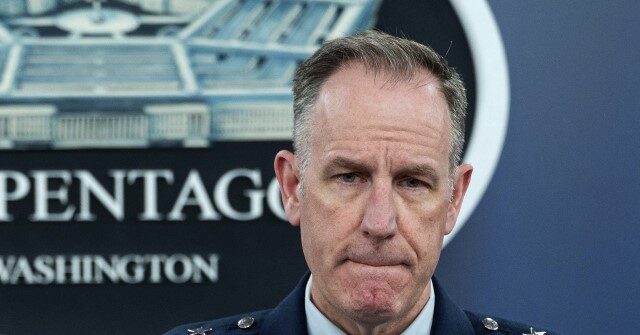On Thursday, the Pentagon clarified that U.S. forces were entirely uninvolved in the recent Israeli operation that led to the death of Hamas leader Yahya Sinwar. Maj. Gen. Patrick Ryder emphasized that this was distinctly an Israeli endeavor, stating, “There were no U.S. forces directly involved.” While the U.S. has provided intelligence and information related to hostage recovery and tracking terrorist leaders, Ryder pointed out that this specific operation—the one that successfully eliminated Sinwar—was carried out independently by Israel. His statements highlighted the complexity of the situation, indicating a need for clarity in assigning responsibility for military actions in conflict zones.
The nuance of U.S. involvement stirred controversy, as both President Biden and Vice President Harris appeared to imply otherwise in their comments regarding Sinwar’s death. Biden’s remarks suggested a direct line of U.S. action dating back to the aftermath of the October 7 attacks, claiming he had mobilized U.S. Special Operations and intelligence teams to assist Israeli counterparts in tracking Hamas leaders. His assertions framed U.S. support as crucial in making Israeli operations successful, providing a narrative of close cooperation in the fight against terrorism. Meanwhile, Vice President Harris echoed this sentiment, praising the efforts of American personnel alongside Israeli forces.
However, the narrative presented by Biden and Harris contrasts sharply with the reality of their administration’s previous hesitations and threats regarding Israeli military actions, particularly in Rafah. Harris had previously cautioned against major military incursions into Rafah in multiple conversations with Israeli leadership, labeling such moves as a significant error and implying that U.S. support could waver if Israel proceeded. These warnings seemed to underline a more complex diplomatic relationship, where the U.S. expressed concerns for civilian casualties and potential backlash from such military operations.
In a stark example of this tension, President Biden explicitly warned of consequences for Israel if they chose to invade Rafah, suggesting a halt to arms shipments critical for operations there. His public statements reflected a broader pattern of U.S. pressure on Israel, as the administration sought to balance support for Israeli security with a stance advocating for a more measured approach in conflict areas densely populated by civilians. Biden’s cautious approach was not universally received; sources close to the administration revealed a level of seriousness behind his declarations, despite reluctance within the Beltway to term them “red lines,” given past implications that similar warnings were ineffective.
Despite the administration’s various cautions, Israeli Prime Minister Benjamin Netanyahu ultimately took the decision to proceed with the Rafah operation, culminating in the death of Sinwar as he attempted to flee into Egypt. This decision underscores the complexities and balancing acts of military strategy in the region. The Israeli leadership’s decision-making was seemingly unaffected by U.S. threats or suggestions, indicated a resolute approach to addressing domestic and international terrorism.
In summary, the developments surrounding Yahya Sinwar’s elimination involve intricate layers of military engagement, international diplomacy, and the challenge of communication between the U.S. and Israel. The Pentagon’s clarification of operational independence starkly contrasts the narratives spun by Biden and Harris, stressing the importance of clear lines of attribution in sensitive military operations. This situation reflects the ongoing complexities facing U.S.-Israel relations, particularly in the context of counter-terrorism efforts and the fulfillment of each nation’s strategic objectives amidst the backdrop of civilian safety and regional stability.

